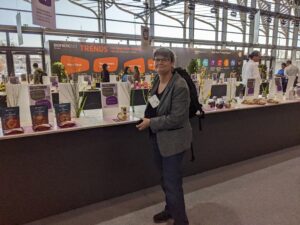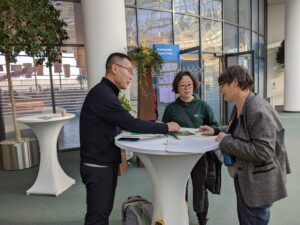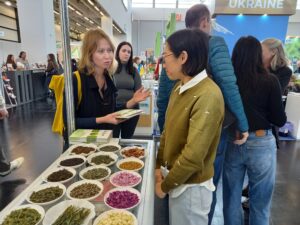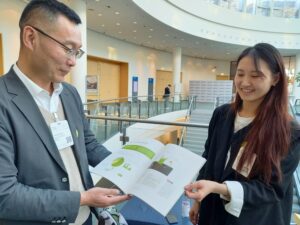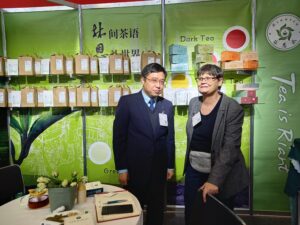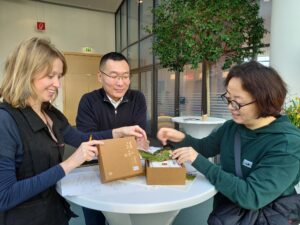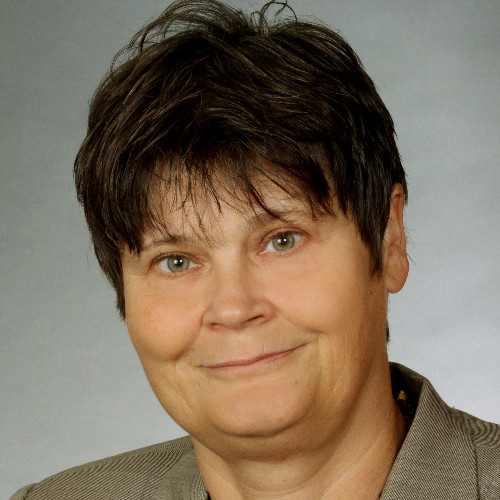From 14-17 February 2023, after three years of interruption due to the COVID-19 pandemic, Biofach, the world’s largest trade fair for organic food, took place again on the usual date in Nuremberg. For the first time since 2019, Chinese companies and visitors were also able to present themselves among the 2,765 exhibitors and over 36,000 professional visitors. The fair was accompanied by an extensive conference program. Below is the trade fair report by Eva Sternfeld and Michaela Boehme.
Germany’s “30 by 30” strategy for the organic sector
In the presence of a large number of international delegations, including representatives of the Chinese Embassy in Germany, the fair was opened on 14 February by Nuremberg’s Lord Mayor Marcus König and the Federal Minister of Food and Agriculture Cem Özdemir. The joy and relief that major events of this kind can now take place again in the usual framework was noticeable. Nevertheless, in his welcoming address Marcus König pointed out that “not everything is sunshine and roses in the organic food industry”. In Europe, inflation is having an impact and has slowed down the growth of the industry. However, as he remarked, this is no reason to be discouraged. The organic industry is an industry of the future.
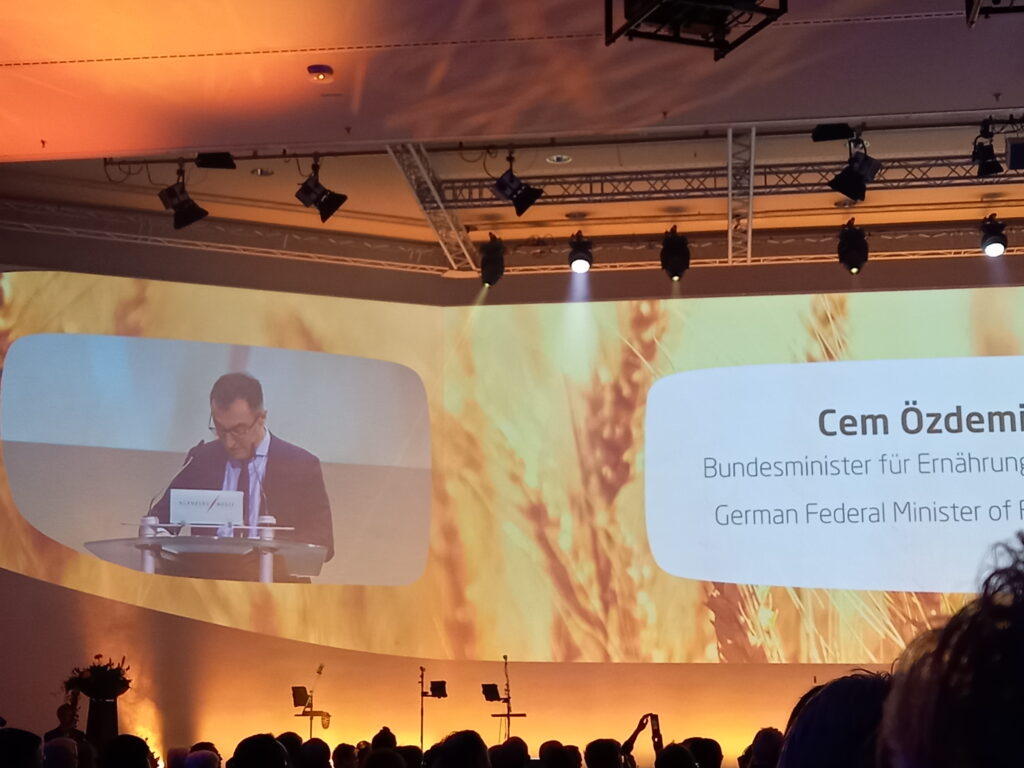
This optimism was shared by Minister Özdemir. He regards organic farming as the key for solving the climate and biodiversity crisis. “If you don’t see it, you should go to the optician,” he emphasized. It is about securing food for tomorrow today, because future harvests cannot be taken for granted.
The number “30” plays an important role in the federal government’s strategy for organic farming. According to the coalition agreement of Germany’s traffic light coalition, the share of organic agricultural land in Germany should increase from 10% at present to 30% by 2030. In addition, Özdemir would also like to give more support to research on organic farming and proposes to use 30% of the agricultural research budget for this.
In order to promote the development of products from organic farming, the demand for organic products needs be increased significantly, he emphasized. To achieve this, the proportion of organic food in communal catering (i.e., canteens and the supply of schools and hospitals) is to be increased to at least 30% in the future.
“Organic cities” network takes the lead
This approach is already being pursued in some German cities, as reported by Nuremberg Lord Mayor Marcus König. In 2003, Nuremberg was one of the first German cities to declare itself an “organic city”. There is now a network of 27 organic cities in Germany with a total of over 14 million inhabitants. These German cities, in turn, participate in a European network of organic cities that has long been coordinated by Nuremberg and is currently coordinated by Bremen. These cities want to create incentives to increase the proportion of healthy food, especially organic food, in city canteens, day-care centers, and in catering services for large events.
Such initiatives are not trivial: the ecological footprint of food roughly corresponds to that of transport. When purchasing, communities try to buy as seasonally and regionally as possible and, by this, support local organic producers in order to promote linkages between the cities and their rural hinterlands as well as support regional food sovereignty.
Some cities are going well beyond the 30% target proposed by the federal government. For example, at a session on organic cities, a representative of the city of Bremen told the audience that his city was aiming for a 40% share of organic food in day-care centers and a 100% share of organic food in catering for public events.
True cost accounting reveals the real value of food
In order to increase the economic competitiveness of organic products, Özdemir emphasized that a new assessment of the true costs along the food value chain is necessary. The topic of “True Costs”, the inclusion of the ecological follow-up costs of agricultural practices, which ultimately have to be paid by the taxpayer, into the food prices, was taken up again at several events during the course of the fair. Such a calculation would make organic food, which has a more favorable life cycle assessment, significantly more competitive, if not superior, to conventional food. According to recent research, organic farming practices save up to 800 EUR of environmental costs per hectare. [1]
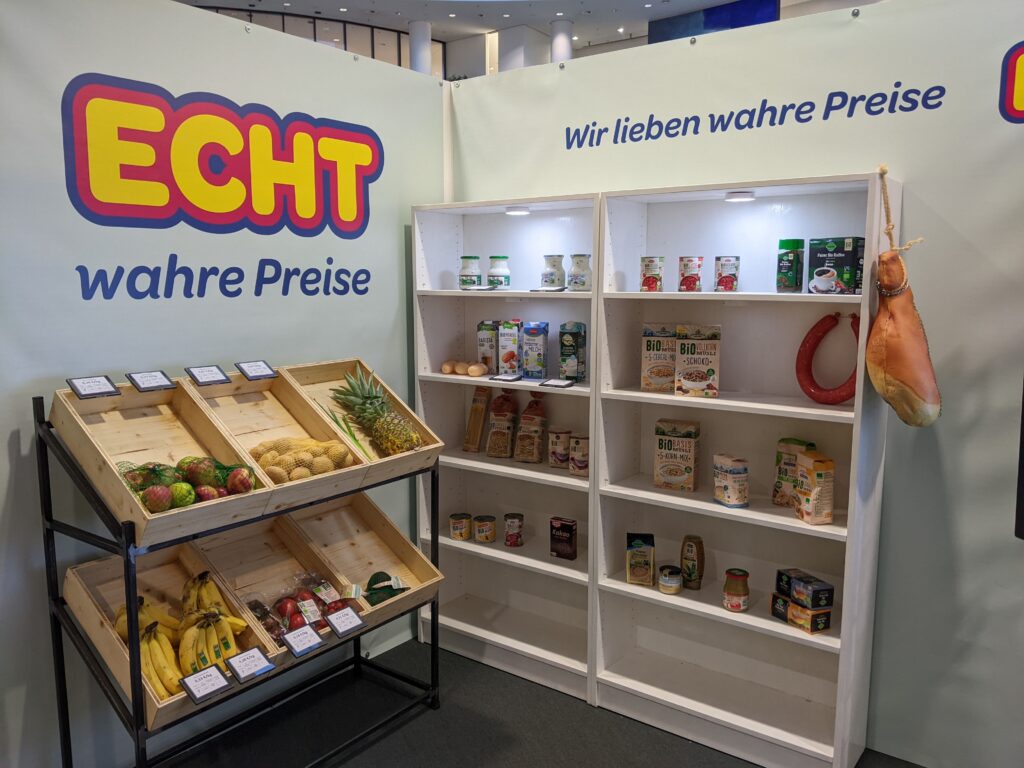
Food sovereignty and support for small farmers
“Food sovereignty” was another topic that was addressed at the fair. At the opening ceremony Tina Andres, Chairwoman of the Board of the Federation of Organic Farming (BÖLW) and Karen Mapusua, President of the International Federation of Agricultural Movements (IFOAM), stressed that striving for food security alone is not enough. It is important to help small farmers, who still produce the majority of the world’s food, to be able to produce independently from large agribusinesses.
Strategy for the future of organic farming
Another highlight on the conference program was the presentation of a new Strategy for the Future of Organic Farming. The strategy is anticipated to facilitate the transformation towards organic farming and foster a sound market development by means of targeted support programs that aim to stimulate both demand and supply, State Secretary of Agriculture Silvia Bender explained.
Dr. Karl Kempens, Division Head of Organic Farming at the Federal Ministry of Food and Agriculture (BMEL), emphasized the open and collaborative approach that has been used to develop the strategy over the past two years. By bringing together voices from different levels of government, research, and business, the Federal Government seeks to develop an efficient and practice-oriented strategy that will be endorsed by consumers, industry, the scientific community and the federal states alike, Dr. Kempens explained.
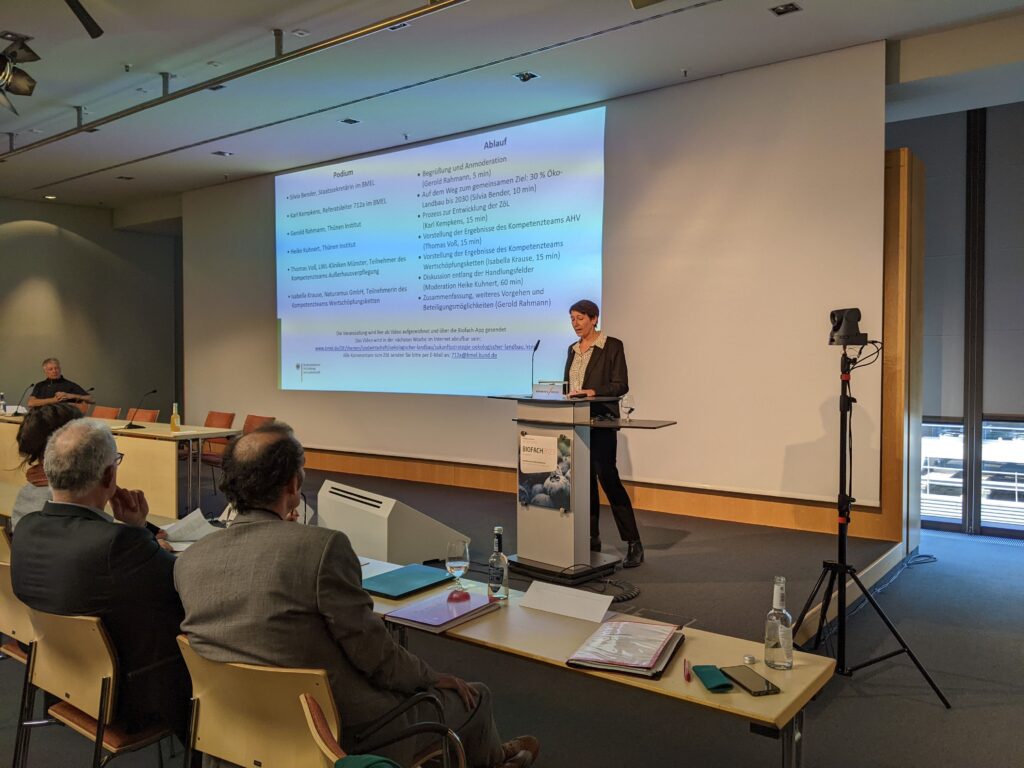
Within the Federal Government, the BMEL is the lead ministry in shaping the strategic process, with support by the Thuenen Institute and the Federal Office for Agriculture and Food (BLE). They are supported by four excellence teams, each with around 30 experts from the organic sector, science, and the federal states. At the event, representatives from the excellence team on away-from-home catering and organic value chains presented concrete proposals for measures to strengthen the percentage of organic food in public catering and to build resilient organic value chains.
Beyond more research funding for organic agriculture and the promotion of organic food in the catering industry, other measures include:
- the dissemination of educational content on organic farming in vocational training, processing, and trade.
- a nation-wide contest to promote “model regions” that support organic agriculture.
- the promotion of 20 demonstration projects focused on building regional organic value chains.
- a national information campaign aimed at educating consumers about the social, ecological, and health benefits of organic food.
Once completed, the Strategy for the Future of Organic Farming will also inform the broader Food and Nutrition Strategy to be developed by the Federal Government until the end of 2023.
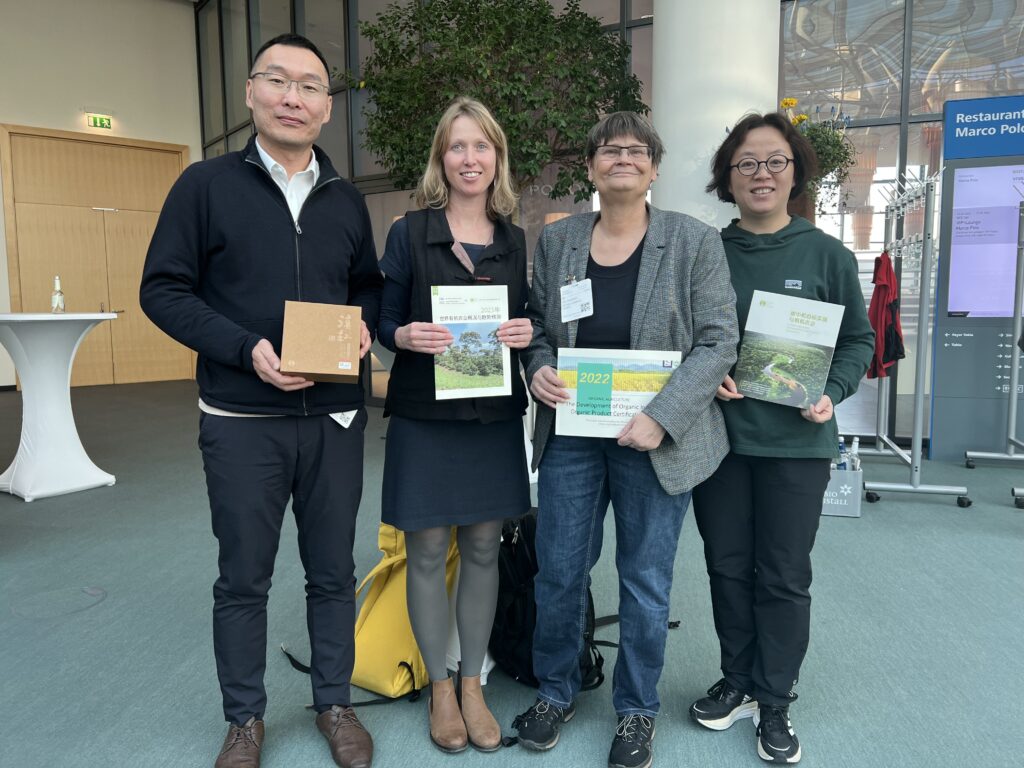
References and reports for download
The latest brochure on organic farming in Germany by the German Federal Ministry of Food and Agriculture provides insights into the sector – from the quality of organic food to organic farmers’ incomes and funding support in Germany. You can download the study here.




